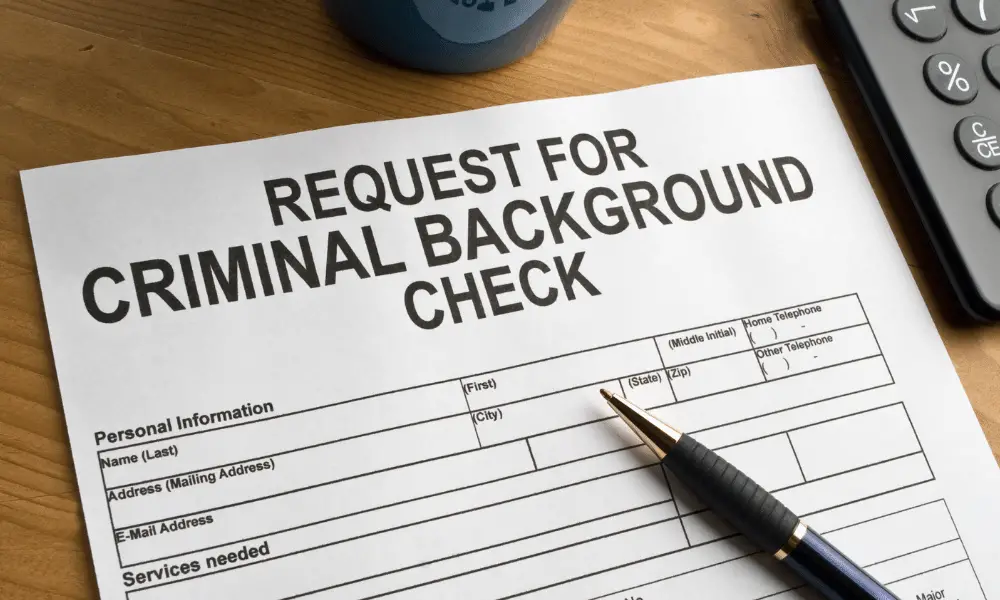
Introduction
When it comes to personal security and knowing what information is out there about you, learning how to get a background check on yourself is essential. This article will guide you through the process, sharing valuable insights, and providing step-by-step instructions. So, let’s get started on this journey of self-awareness and empowerment.
1. Understanding the Importance of Self-Background Checks
In this section, we’ll explore why it’s crucial to perform background checks on yourself. We’ll delve into the benefits of self-awareness and how it can help you in various aspects of life.
2. Gather Necessary Information
To start your background check, you’ll need to gather specific personal information. This section will outline the details you should have on hand, making the process smoother and more accurate.
3. Online Databases and Resources
Discover the various online databases and resources that can assist you in obtaining your background information. We’ll provide you with recommendations and tips for using these platforms effectively.
4. Hiring a Professional Service
If you prefer a hands-off approach, hiring a professional background check service is an option. Learn about the benefits of using such services and how to choose the right one for your needs.
5. Interpreting Your Background Check
Once you’ve obtained your background check, it’s essential to understand what the information means. This section will guide you through interpreting the report and identifying any discrepancies.
6. Correcting Errors
Mistakes can happen in background reports. We’ll explain the steps to take if you find errors in your background check and how to correct them to ensure accuracy.
7. Protecting Your Personal Information
This section will provide valuable insights into safeguarding your personal information and minimizing the chances of identity theft or misuse of your data.
8. Frequently Asked Questions
Can I perform a background check on myself for free?
Yes, there are ways to obtain certain background information for free. We’ll outline these methods in detail.
How long does it take to get a background check on yourself?
The time it takes can vary, but we’ll give you a rough estimate based on different methods.
Why You Should Perform a Self-Background Check
Performing a self-background check isn’t just about satisfying your curiosity; it serves several practical purposes:
1. Employment Opportunities
Did you know that many employers run background checks on potential hires? By conducting your own background check, you can identify any potential issues that may arise during the hiring process and address them beforehand.
2. Rental Applications
When applying for a rental property, landlords often conduct background checks. Knowing what’s on your record can help you prepare for such inquiries and increase your chances of securing your desired accommodation.

3. Personal Security
Being aware of your own background can be crucial for your personal safety. It allows you to spot inaccuracies, identity theft, or false information that might harm your reputation.
How to Get a Background Check on Yourself
Now, let’s dive into the steps to perform a self-background check:
- Contact Local Law Enforcement: Begin by contacting your local police department, county clerk’s office, or state law enforcement agency. Inquire about the process for obtaining your criminal record.
- Complete the Necessary Forms: You may need to fill out specific forms and provide identification to initiate the request.
- Pay Any Required Fees: Be prepared to pay a processing fee, if applicable.
- Wait for Processing: Once you’ve submitted your request, it may take some time to receive your criminal record. Be patient during this period.
- Request a Credit Report: Contact one of the major credit bureaus—Equifax, Experian, or TransUnion—to obtain your credit report. Federal law allows you to receive one free credit report annually.
- Review Your Credit Report: Carefully review your credit report for inaccuracies or discrepancies.
- Dispute Errors: If you find errors, dispute them with the credit bureau to have them corrected.
- Contact Educational Institutions: Reach out to the schools, colleges, or universities you attended and inquire about their process for obtaining your educational records.
- Provide Necessary Information: Be prepared to provide your personal details and enrollment information.
- Contact Previous Employers: Reach out to your former employers to request copies of your employment records, including dates of employment and job titles.
- Review the Information: Thoroughly review the records for accuracy.
FAQs
Is it legal to perform a background check on myself?
Yes, it is legal to perform a background check on yourself. You have the right to access your own records.
How often should I check my background?
It’s a good practice to check your background at least once a year to ensure its accuracy and address any issues promptly.
Are there any online services that offer background checks on individuals?
Yes, there are several reputable online services that provide background checks for individuals. Be cautious and choose a reliable service.
Will my self-background check include sensitive information like medical records?
No, a self-background check typically does not include medical records. Medical information is protected by privacy laws.
Can I request a background check on someone else?
Performing a background check on someone else without their consent may be subject to legal restrictions. Always respect privacy and seek permission when necessary.
What do I do if I find errors in my background check?
If you find errors in your background check, follow the respective procedures for each type of record (criminal, financial, educational, employment) to correct them.
What information can I expect to find in my background check?
We’ll cover the types of information typically included in a background check report.
Are online background check services reliable?
Discover the reliability of online background check services and how to choose a reputable one.
Can I perform a background check on someone else?
While the focus is on self-background checks, we’ll briefly explain the process of checking someone else’s background.
What legal considerations should I be aware of?
Learn about the legal aspects of background checks to ensure you’re following the law.
Conclusion
Performing a background check on yourself is a proactive step toward self-awareness and personal security. By following the steps outlined in this guide and understanding the nuances of background checks, you can take control of your personal information and protect your interests effectively.

